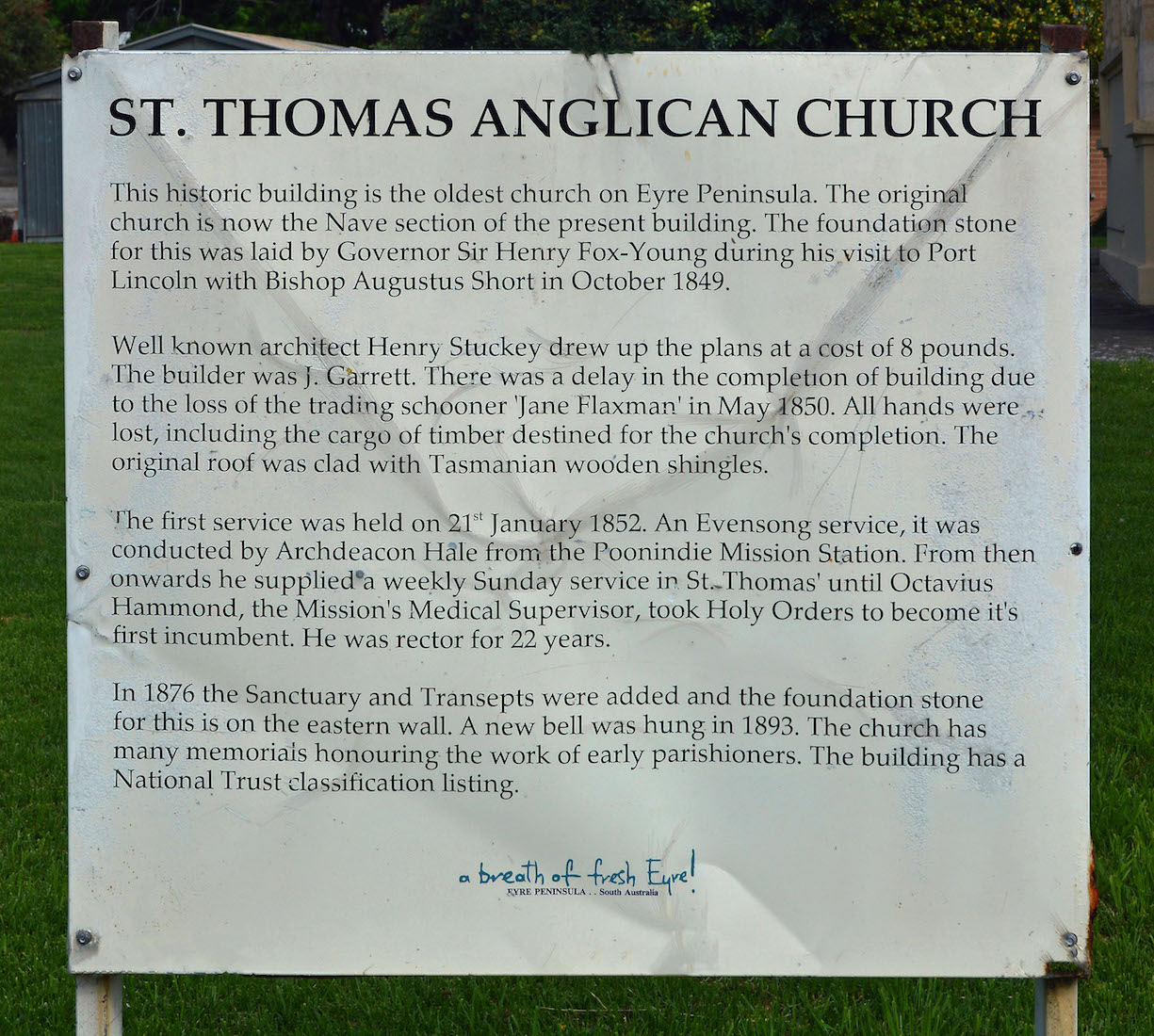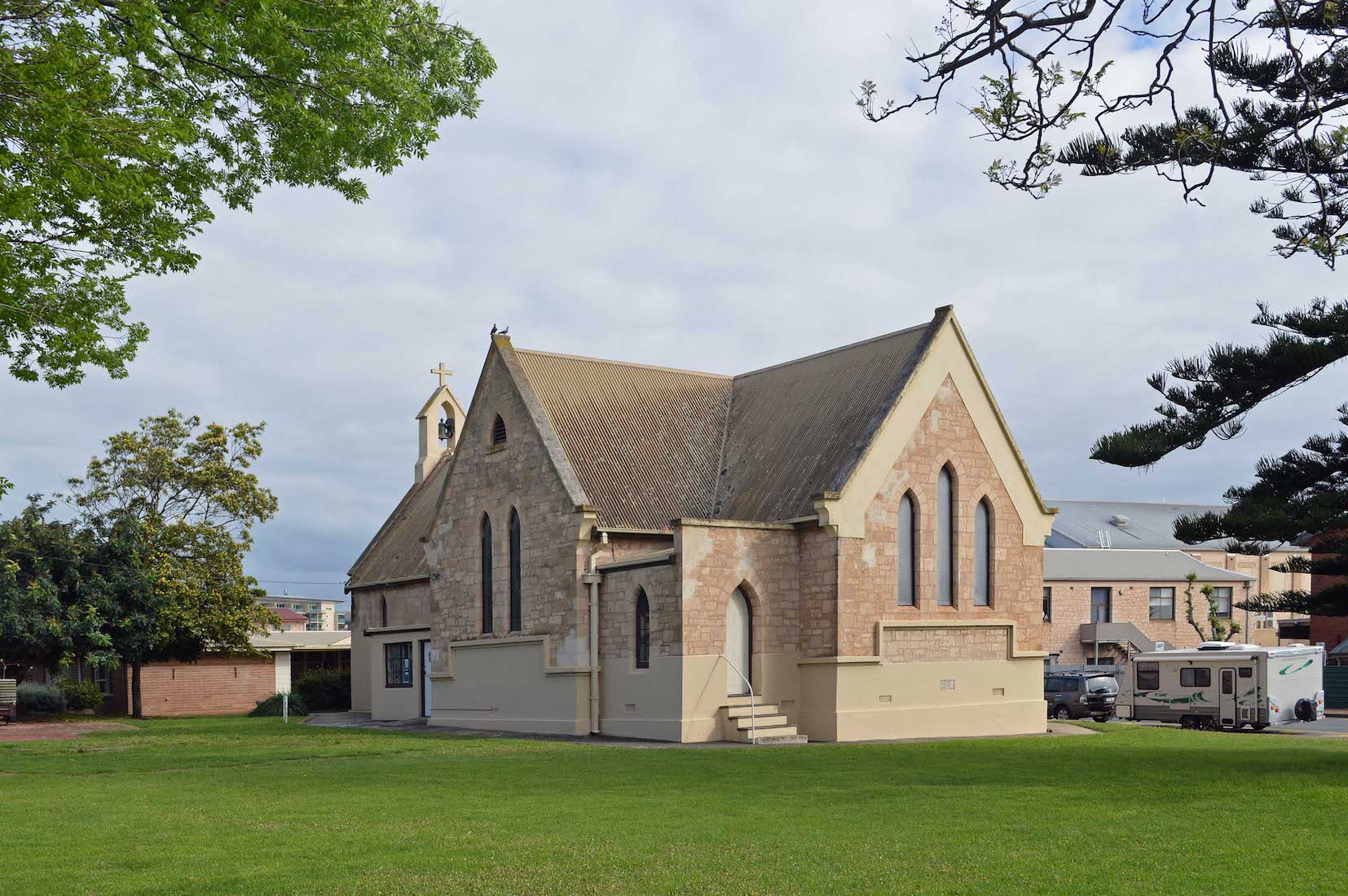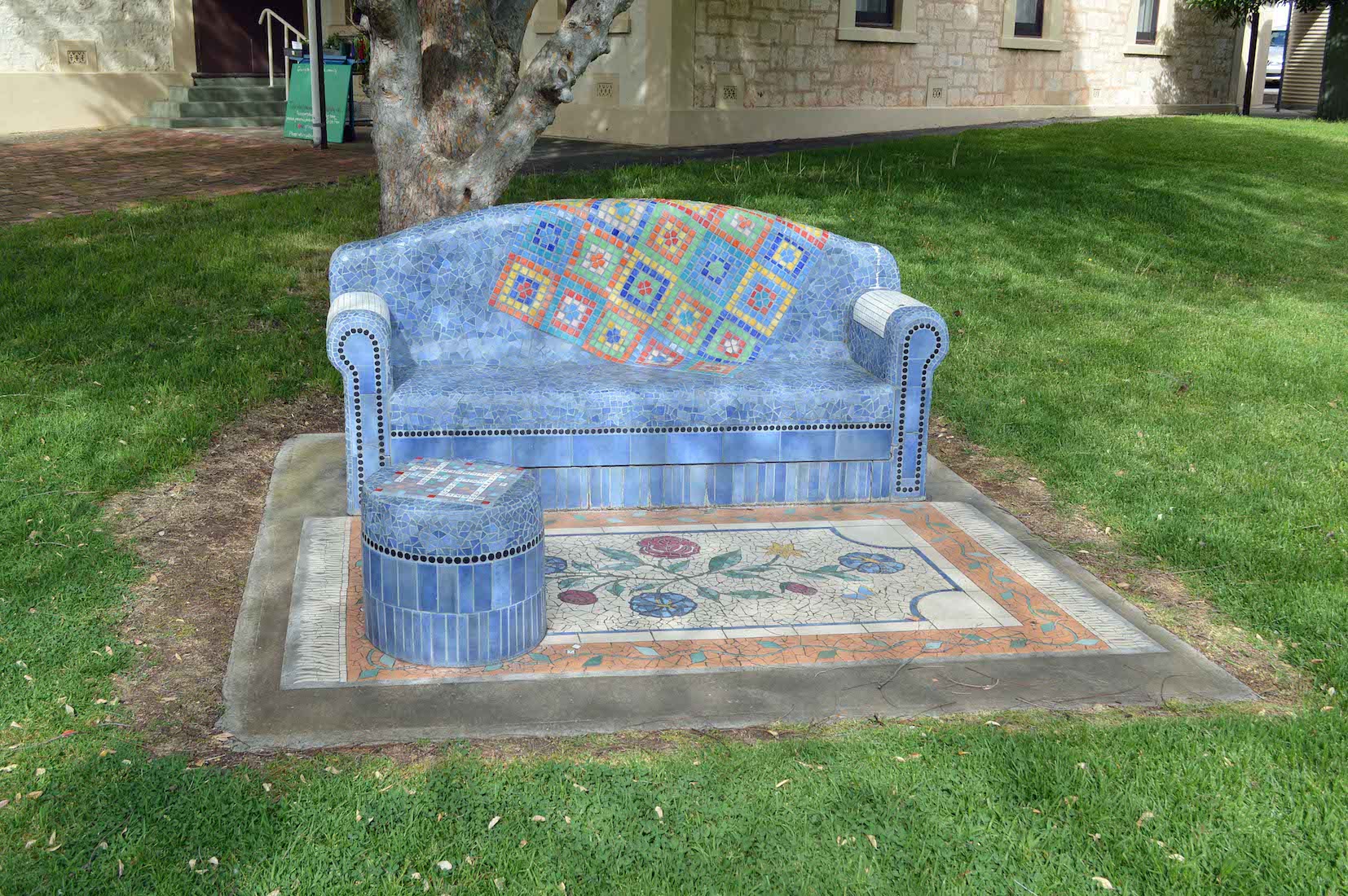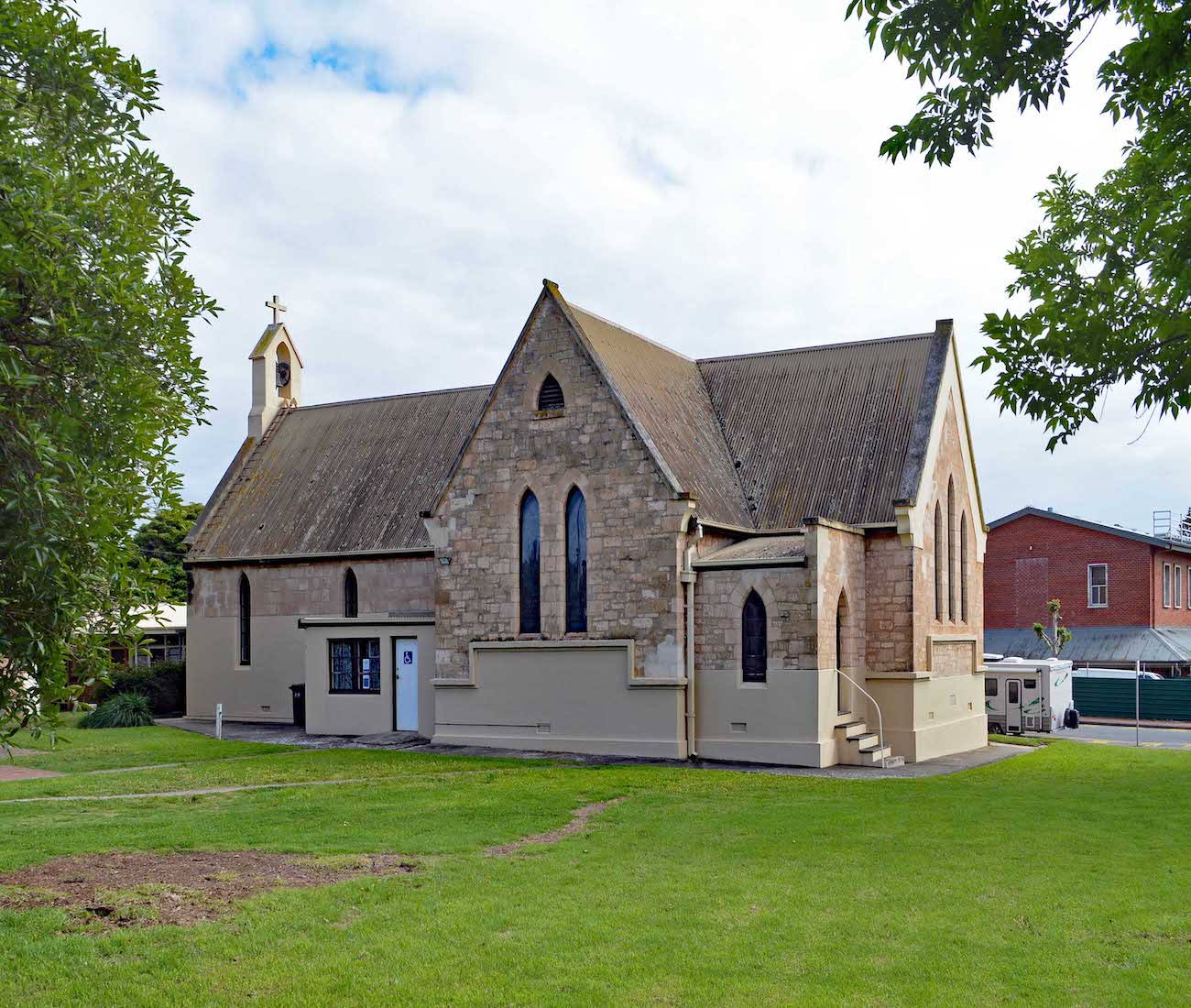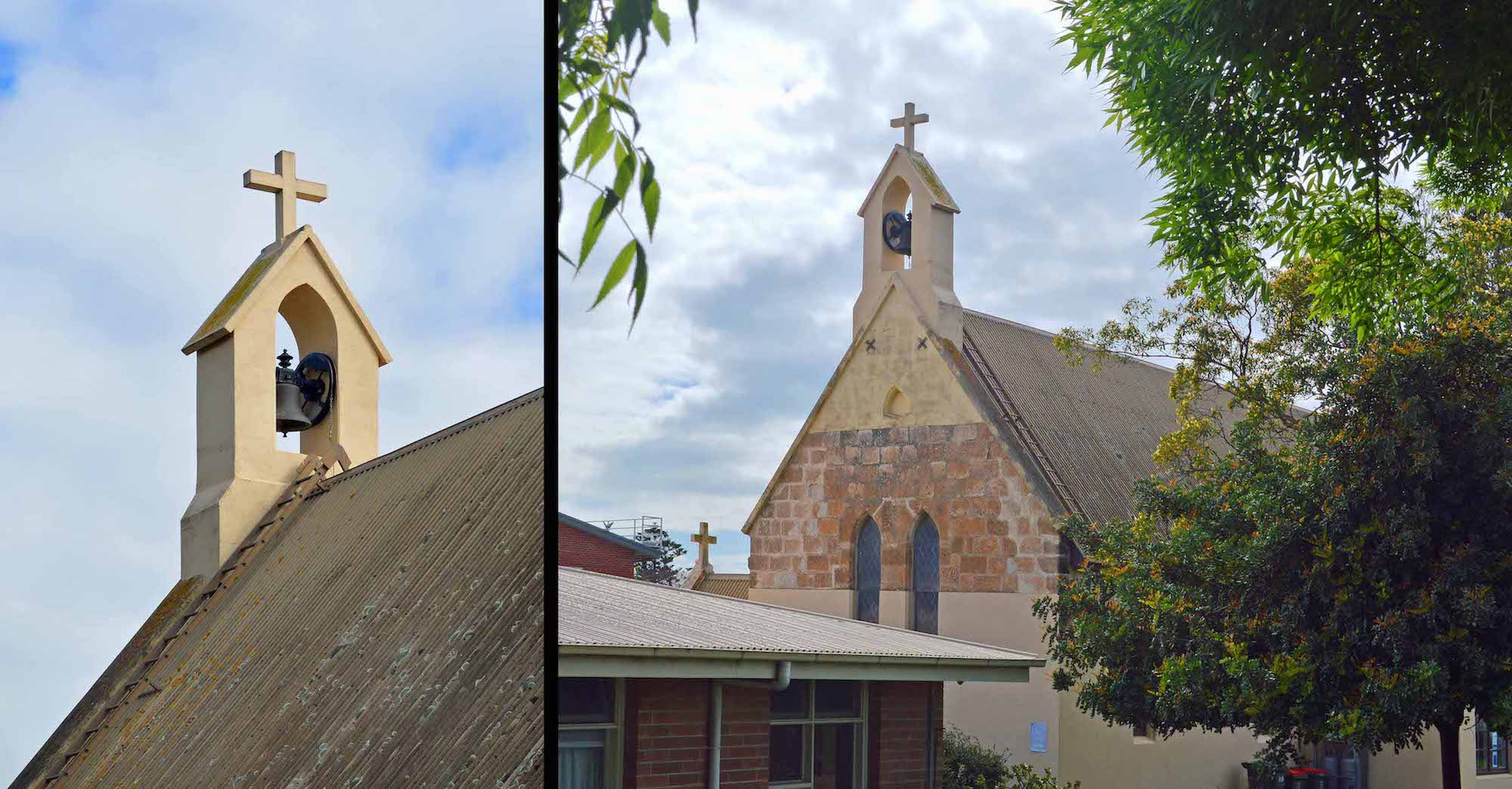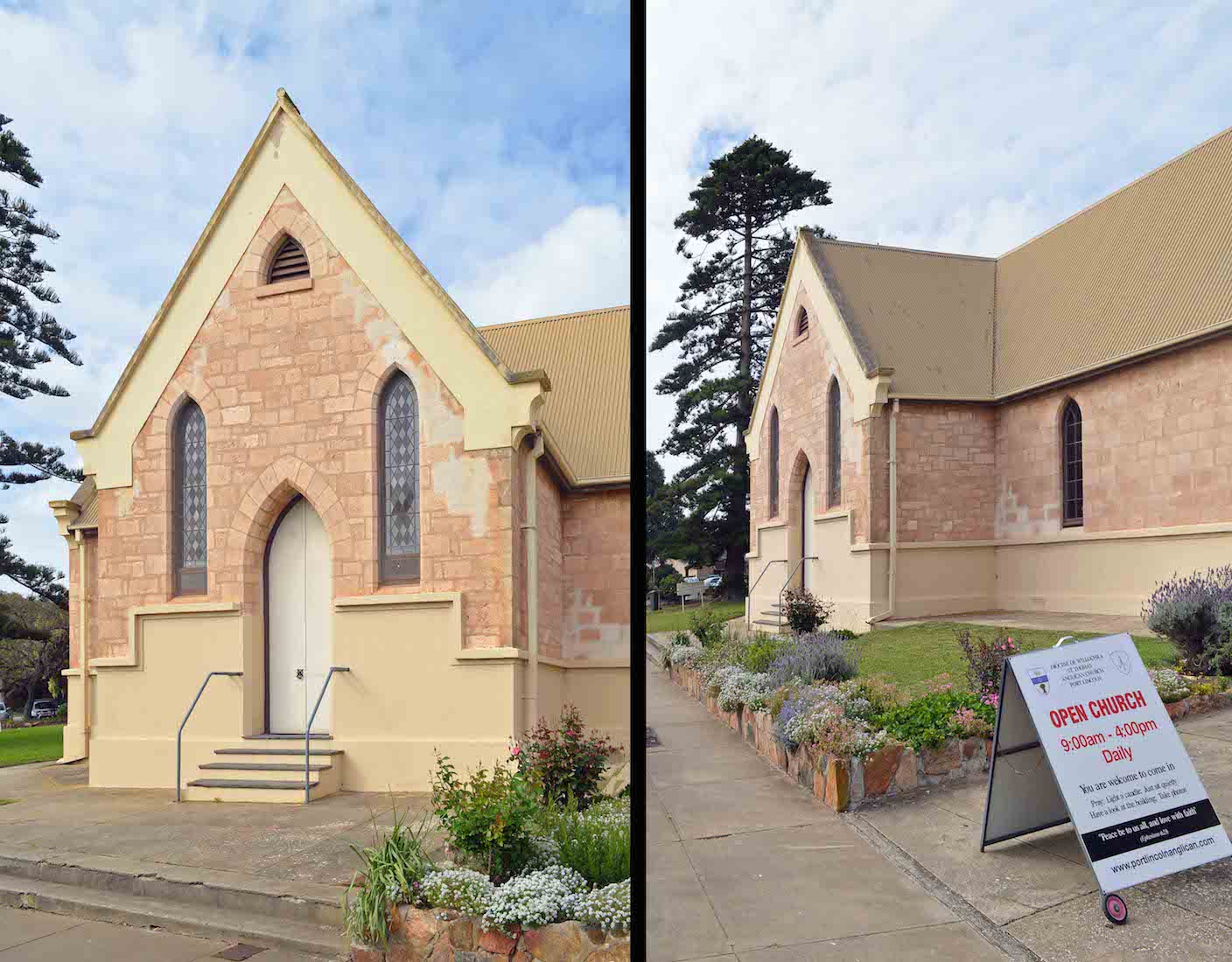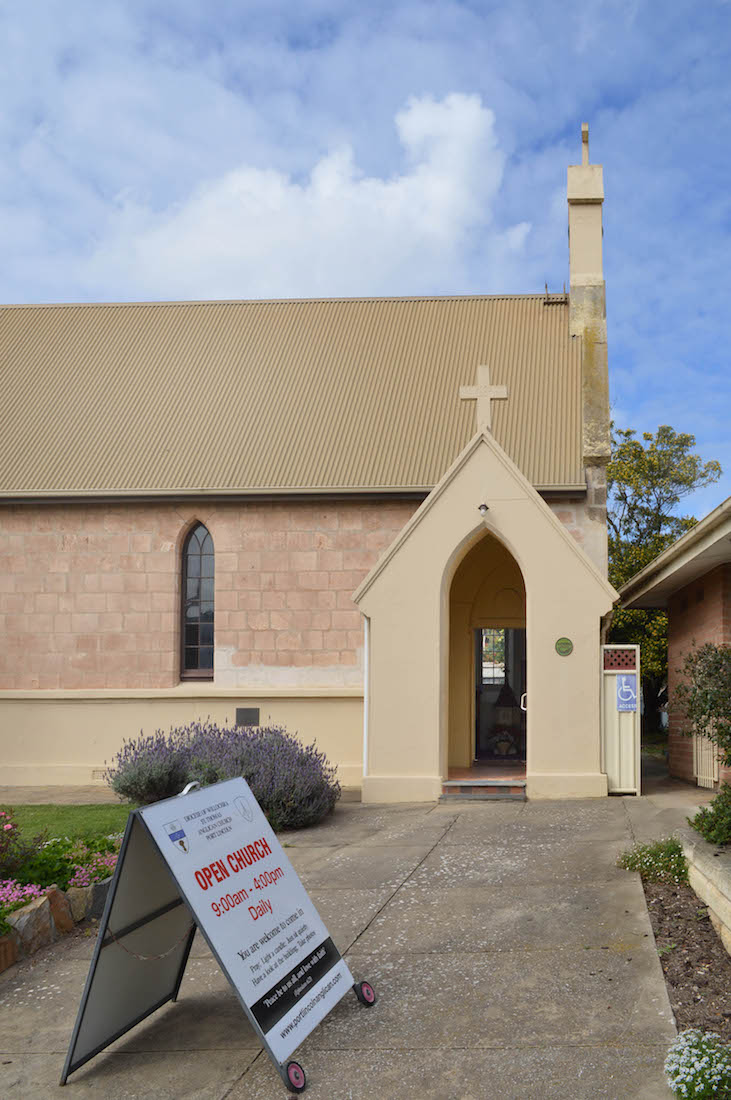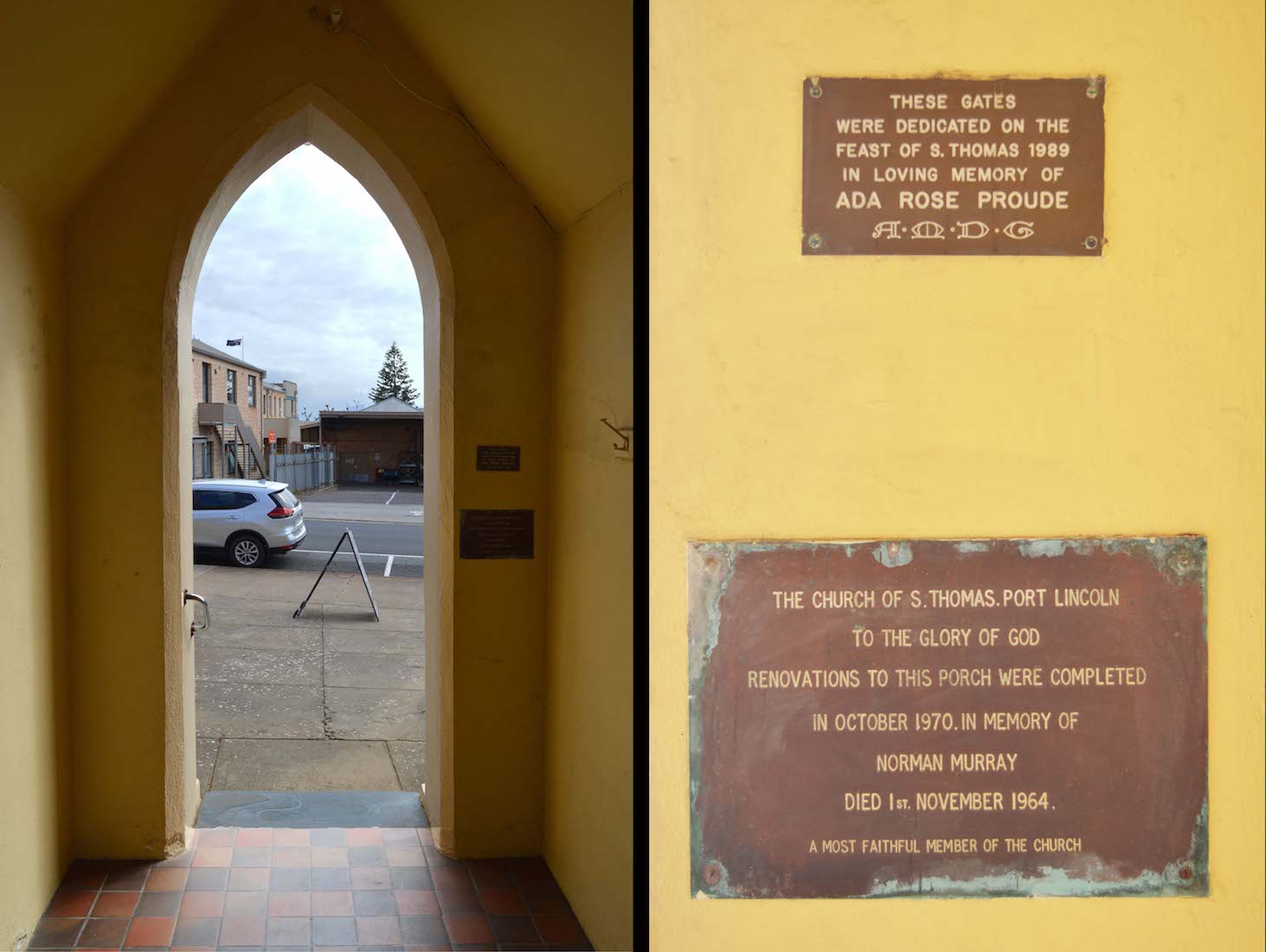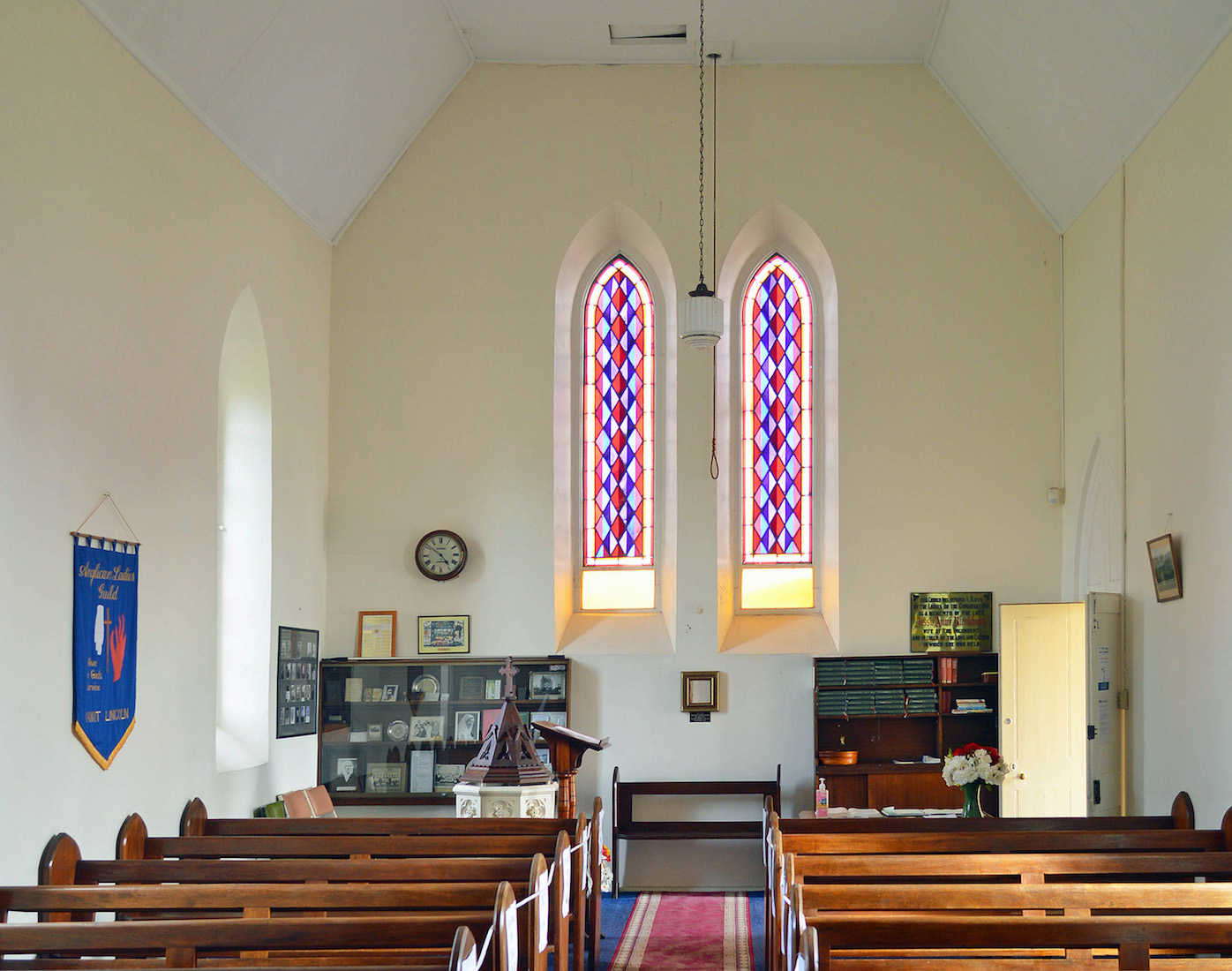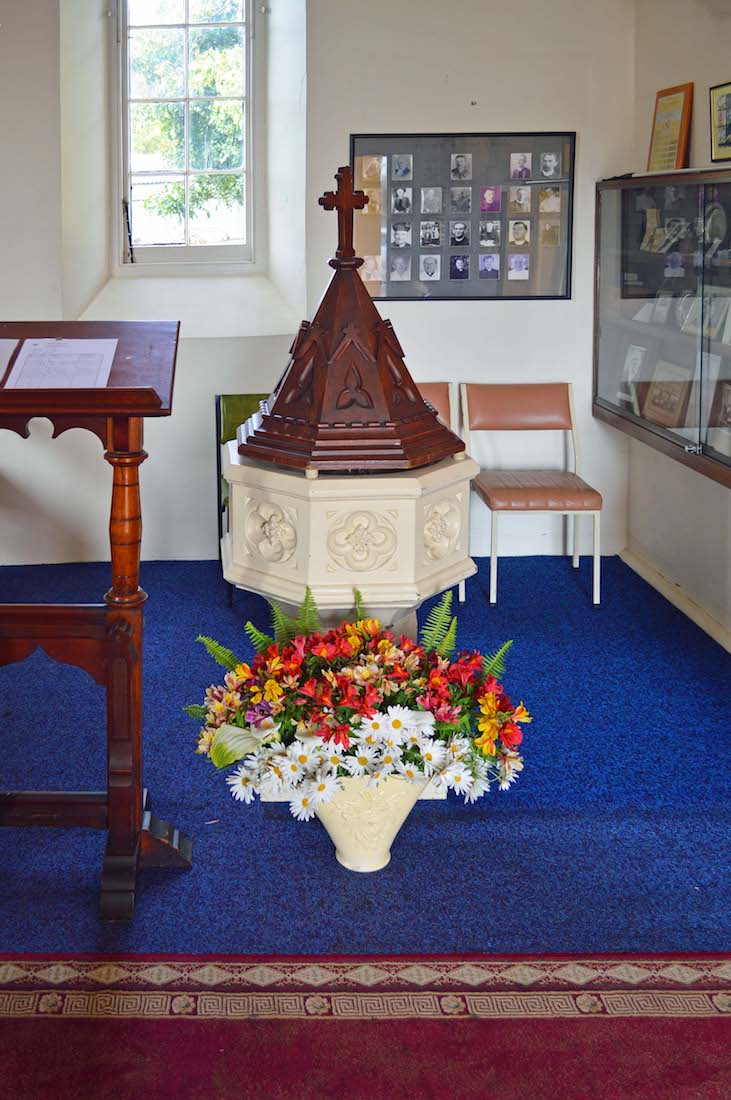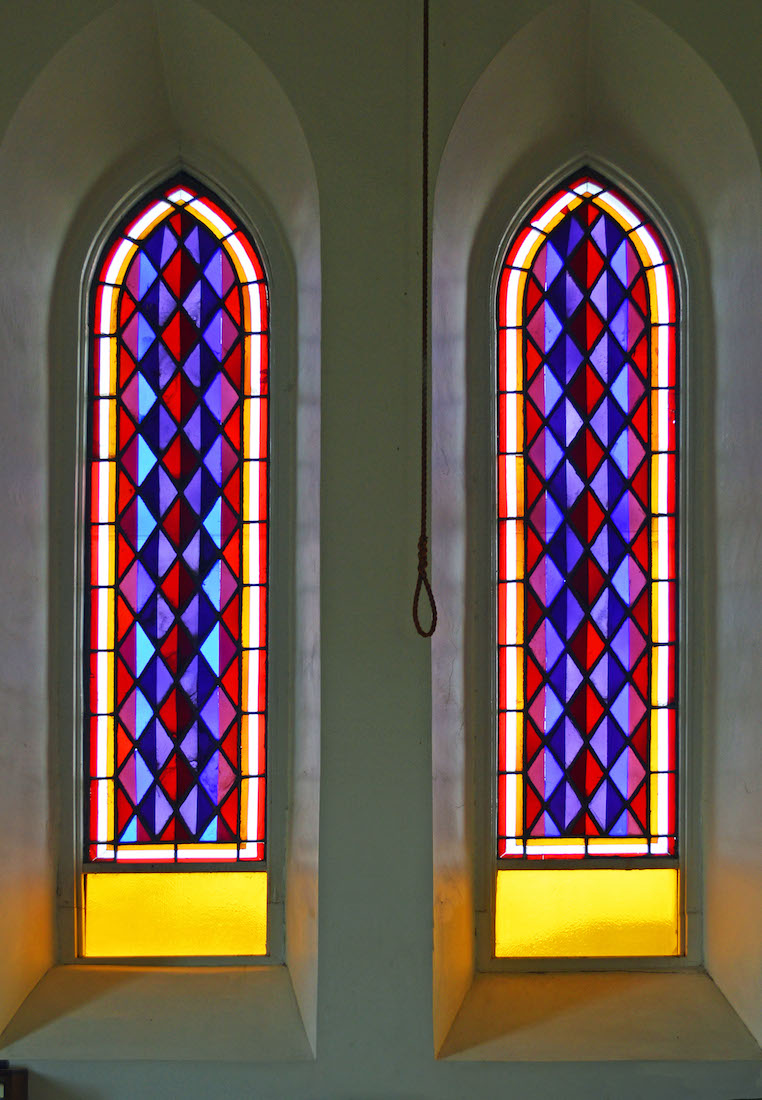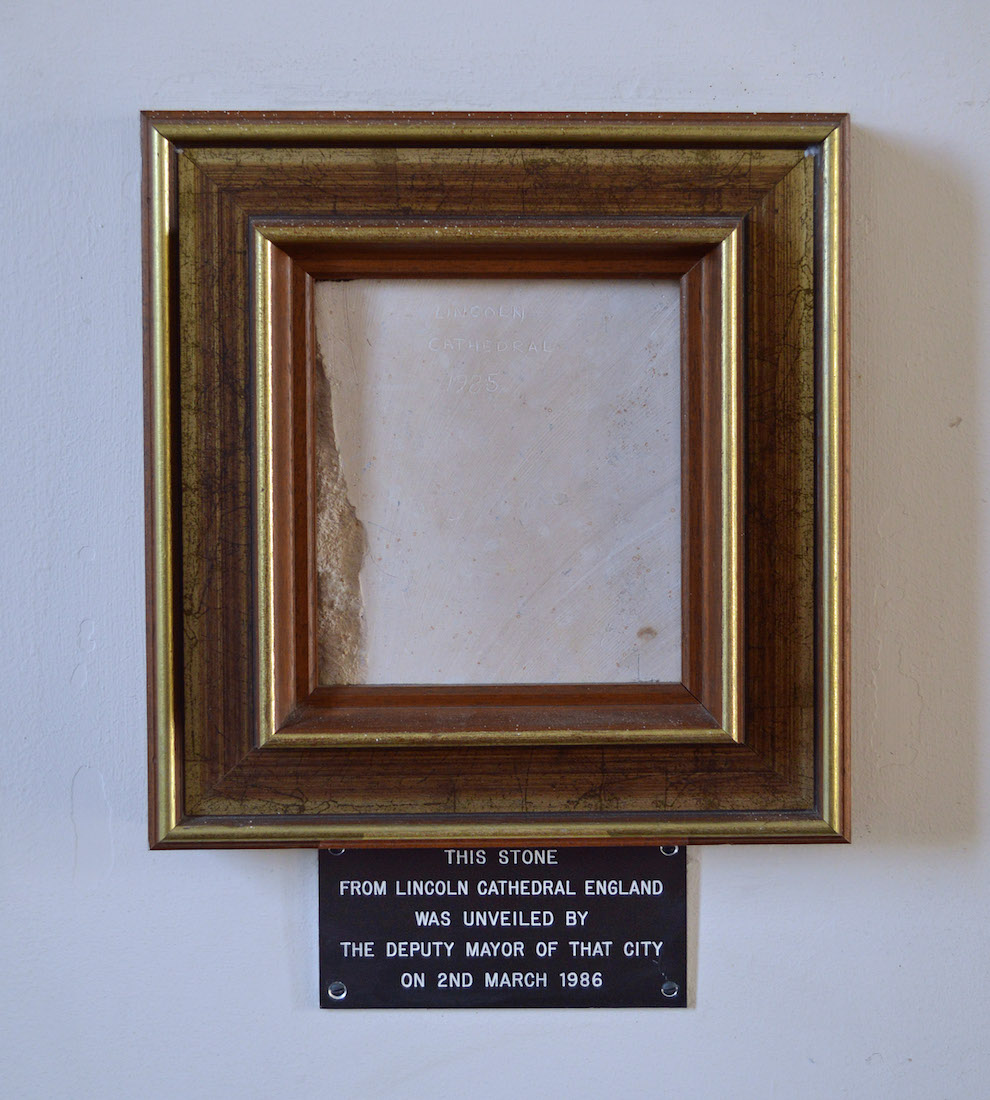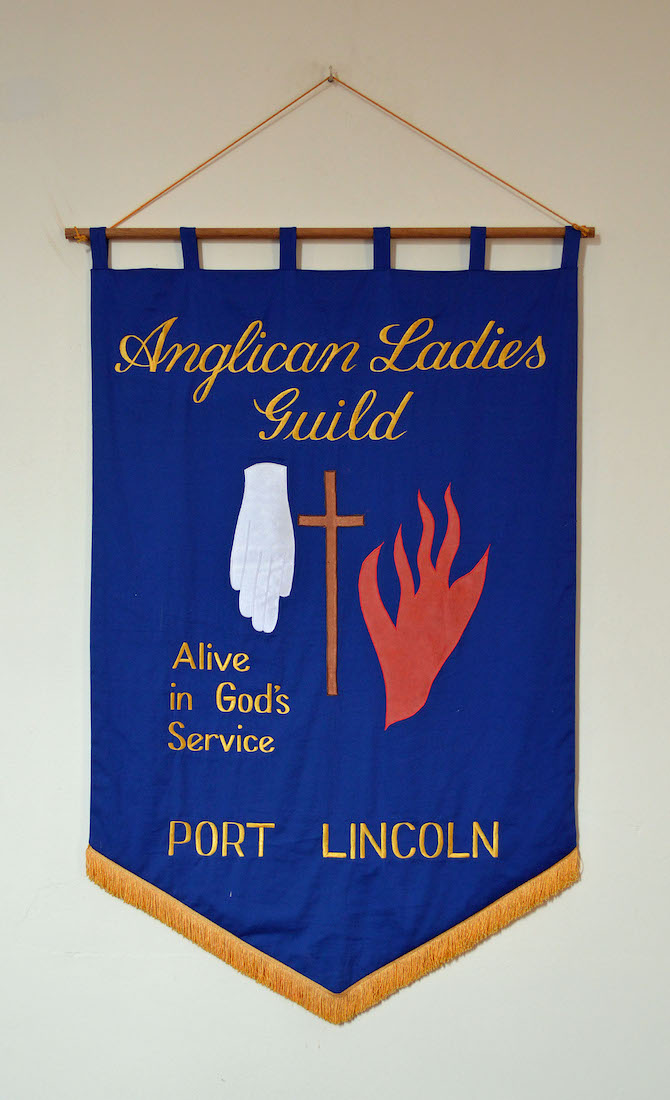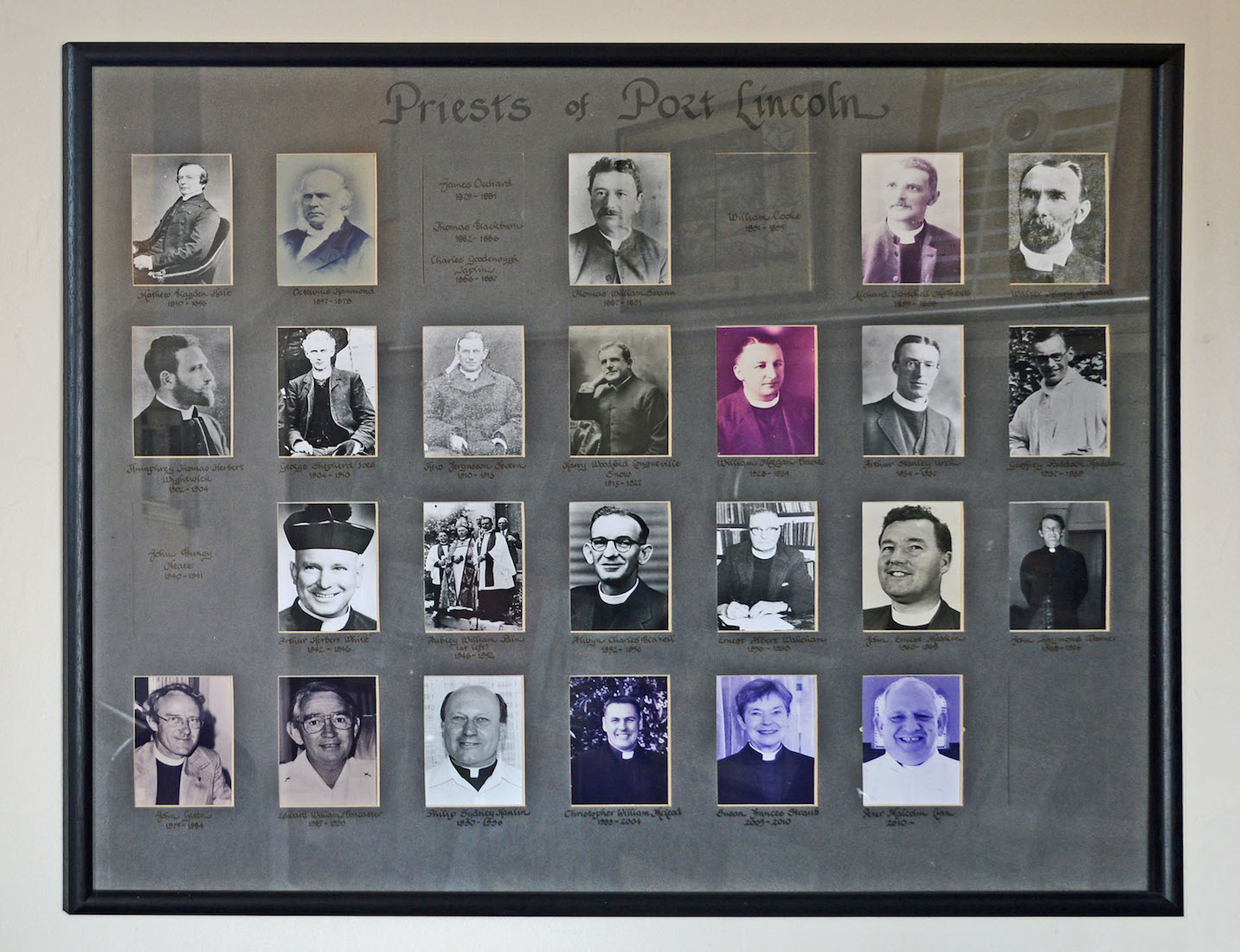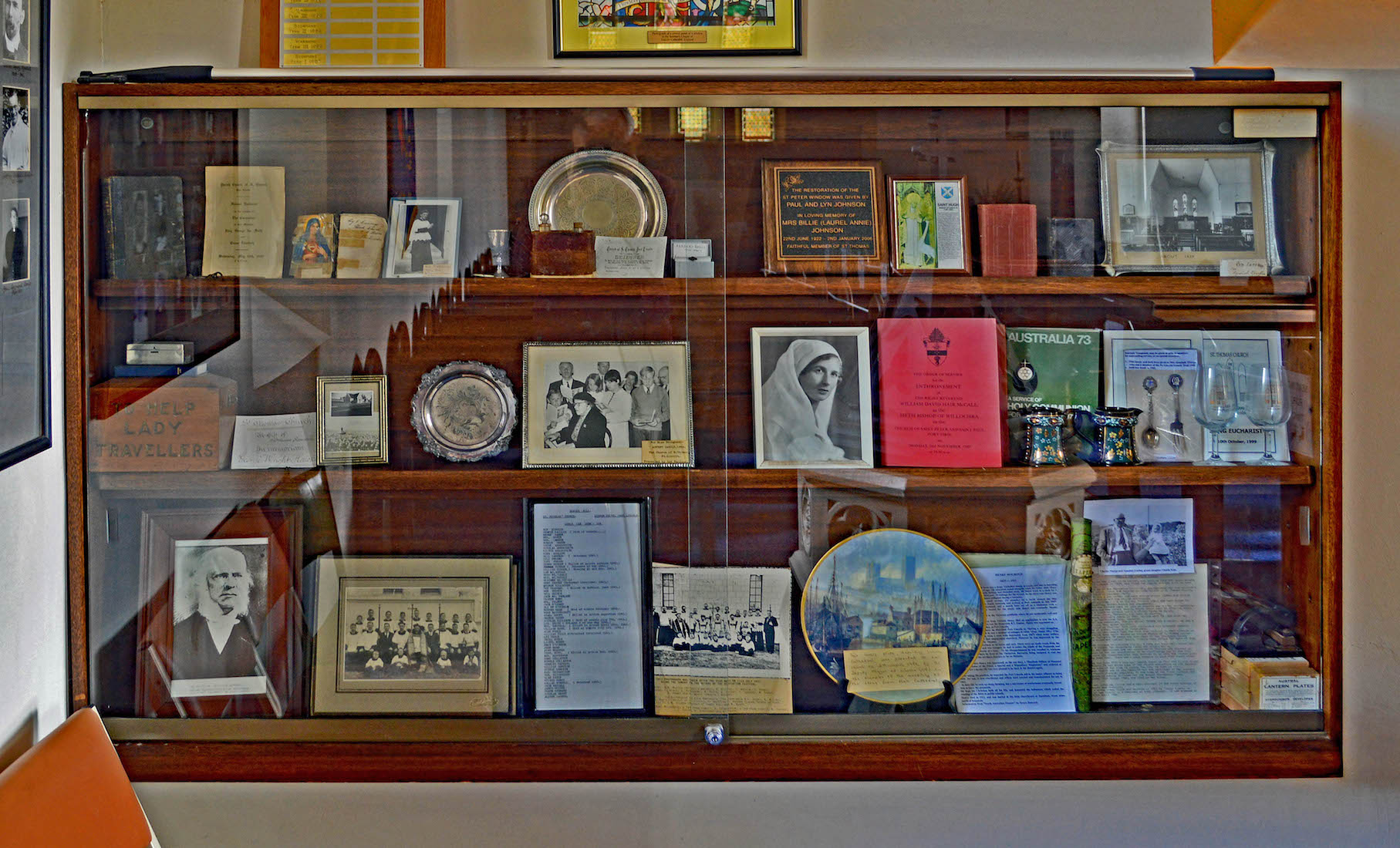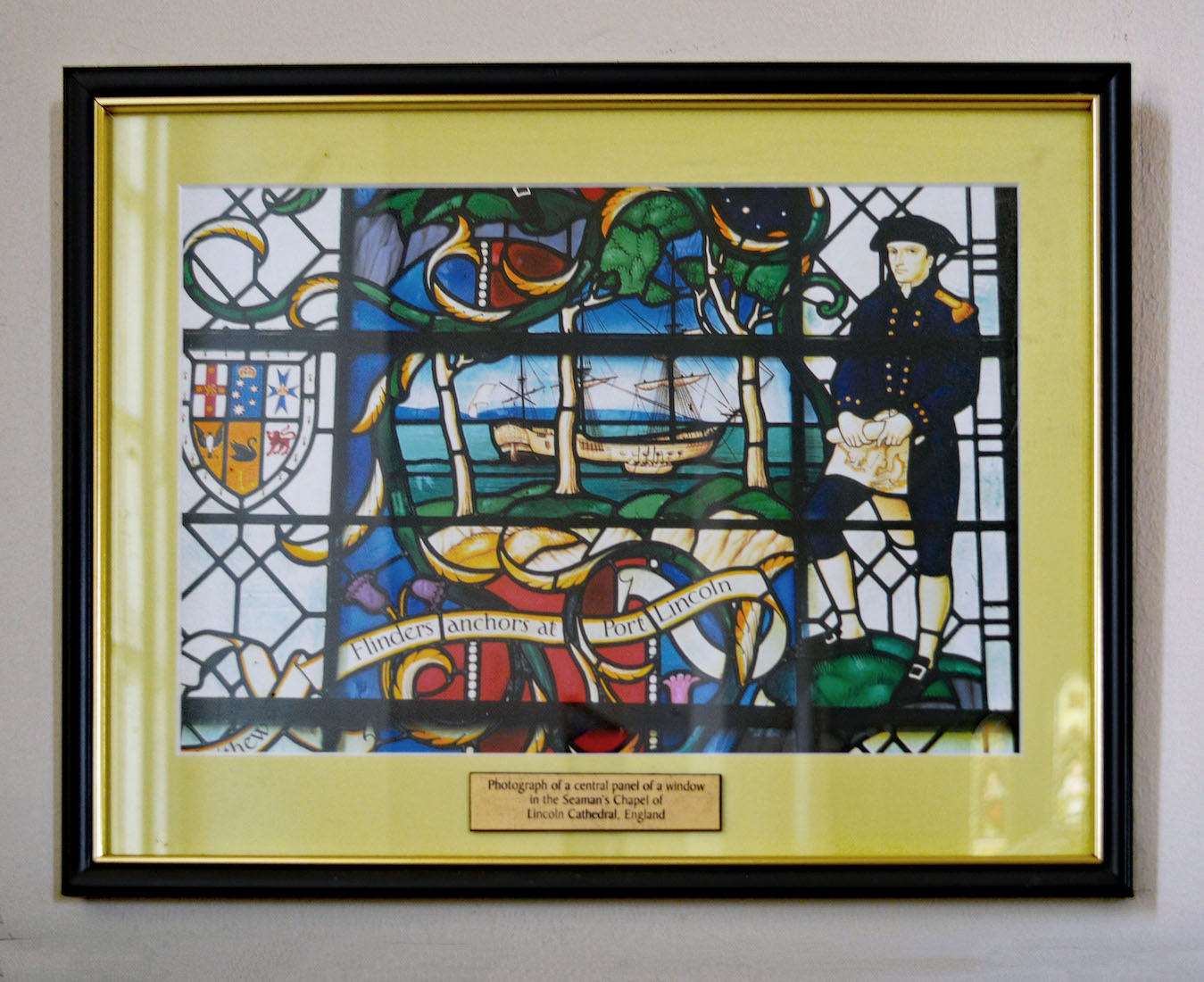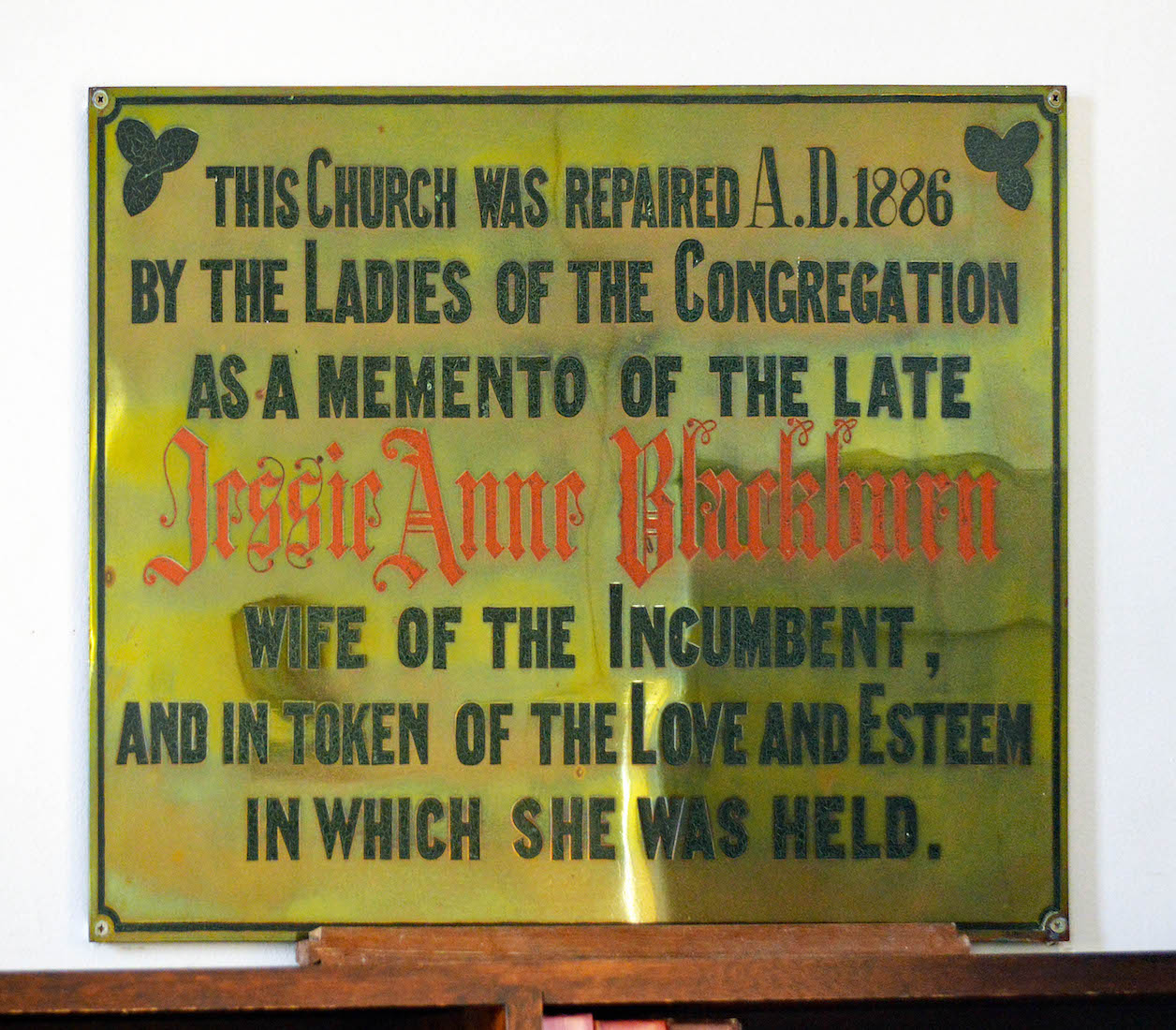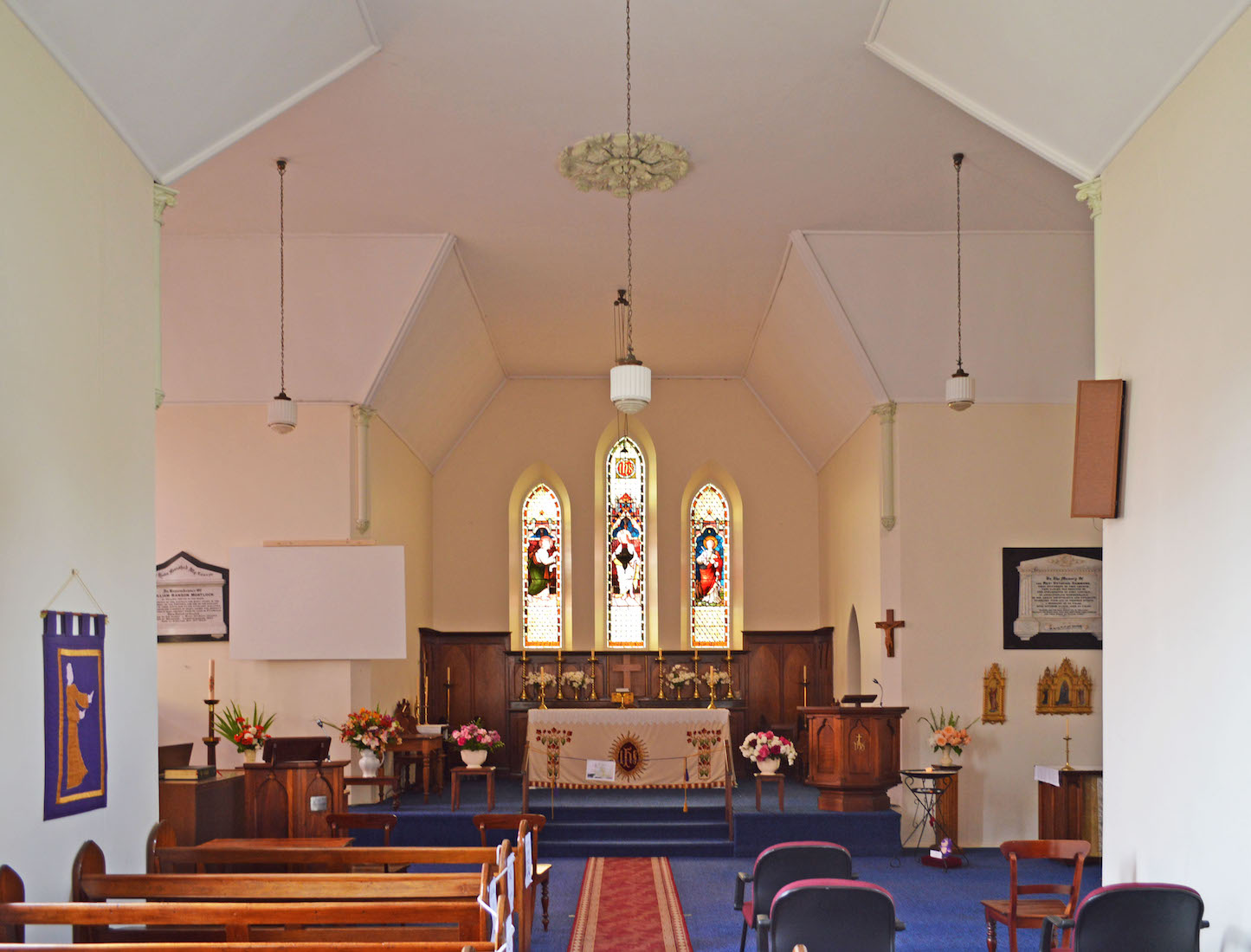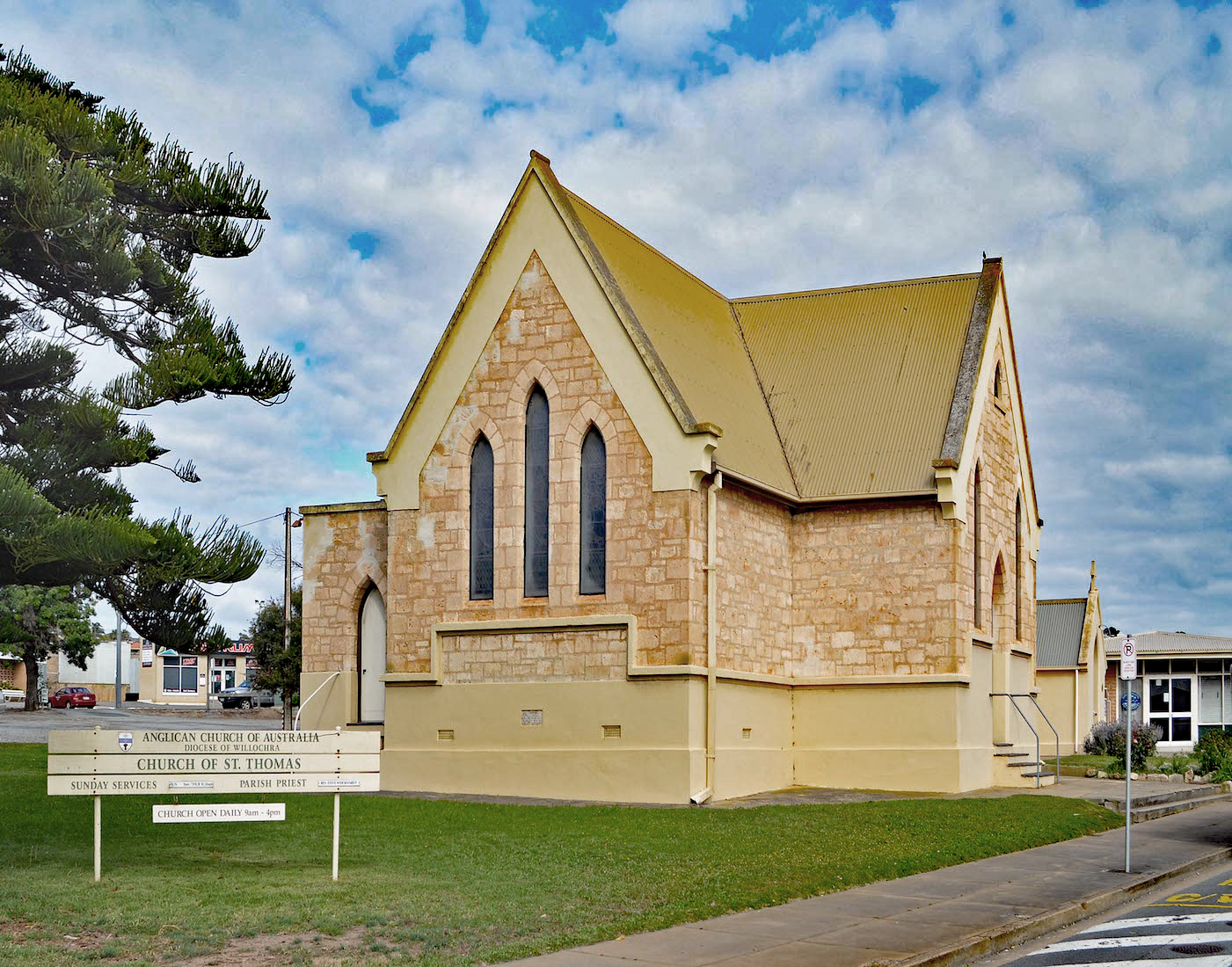
Directly across from the Visitor Information Center in Port Lincoln is the Anglican Church of St Thomas. And a sign that says it is open every day! Now who could resist an invitation like that! INDEX
2. SIGN
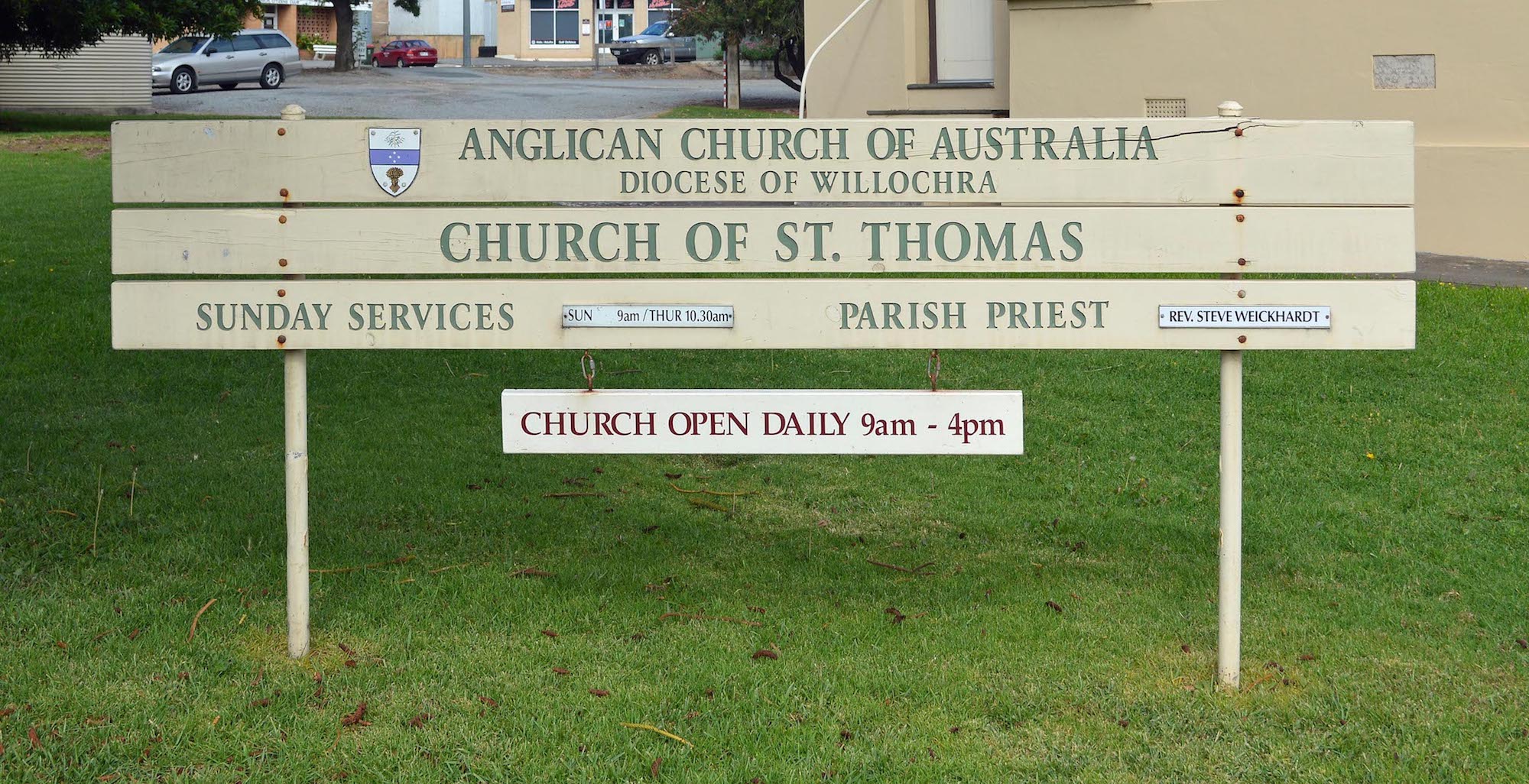
The sign also gives information about the priest, and the Sunday Services – one of which is held on Thursdays! The Church belongs to the Diocese of Willochra, with cathedral in Port Pirie. The coat of arms has a sprig of wattle at the top for Australia, and a sheaf of grain alluding to the general farming area of the northern part of South Australia. The four stars is more tricky. The Diocesan crest dates from 1847, at which time the Diocese of Australia was divided into four separated dioceses: Sydney, Adelaide, Newcastle and Melbourne.
3. INFORMATION BOARD
There is also an information board nearby. The board is a little the worse for wear, but contains many historical facts about this Church – the oldest church on the Eyre Peninsula.
4. SOUTHEAST VIEW
We shall walk right around this Church. A small vestry has been added in the Southeast corner. The stone for the walls was quarried from the Duck Pond district, just northwest of Port Lincoln.
5. RESTING PLACE
It is not a long walk around this Church, but we might like to avail ourselves of this resting place just south of the Church.
6. SOUTH SIDE
Although this Church was built in stages, the different original parts – nave, transepts, sanctuary – fit together well. The vestry looks like an early addition too. I’m less sure about the utility room added West of the transept! A problem with many early churches (and cathedrals) is that they were not designed to allow for expansion. The maritime climate has not been kind to the stonework here either, with quite a lot of patching evident.
7. BELL TOWER
There is a cute little bell tower at the West end of the nave. The bell was hung here in 1893, and more work was carried out in 2012.
8. NORTH SIDE
The North transept and wall are the public face of the St Thomas Church, and make an attractive statement behind the little stone-walled garden. It is a thrill to have the Church open to the public, and the community is to be congratulated for this.
10. PORCH
We stand in the little porch and look out, noticing two plaques on the right of the entry. The top plaque remembers Ada Rose Proude to whom ‘these gates’ were dedicated. There are two wooden doors behind us which might be described as ‘the Gates of Heaven’, but it seems unlikely. The larger plaque below recalls some renovations made to the porch in 1970, and Norman Murray is remembered for his faithfulness.
12. BAPTISMAL FONT
The baptismal font with its neat little wooden canopy stand directly opposite the entrance. It is here that babies and young people are baptised, with baptism recognised as a rite of entry into the Body of Christ and this Church. The font is placed near the entrance of many churches and cathedrals to emphasise the ‘entry’ idea.
13. WEST WINDOWS
The windows have a colourful diamond pattern set within a frame of rectangles. They add a bright touch to this wall, but I do not know of any theological or other significance. The bell pull hangs down between the windows.
14. LINCOLN STONE
This stone comes from Lincoln Cathedral in England, and was unveiled in 1986. There is an obvious connection with Lincoln, as the city of Port Lincoln was named by Matthew Flinders after the city of Lincoln in his native county of Lincolnshire. On the other hand I must confess to a quiet amusement at the way many churches and cathedrals like to accumulate pieces of other churches and cathedrals! Perhaps it is a sign of common community and belief?
15. GUILD BANNER
This bright banner on the South nave wall belongs to the Port Lincoln Anglican Ladies’ Guild. It displays the motto ‘Alive in God’s Service’, and symbols of the Trinity: God the Father, Son and Holy Spirit.
16. GALLERY OF PRIESTS
Israel was often exhorted to look back, to recount its history, and to remember the blessings of the past. It is a good instruction for churches too!
17. DISPLAY CABINET
There is a lot of history on display here in this cabinet full of silverware, photographs and certificates. Here is the Church treasury with items which although perhaps not of great intrinsic value, are irreplaceable memories of past associations and events.
18. LINCOLN CATHEDRAL WINDOW
Here is a fascinating piece of history. It is a photograph of a portion of a window in the Seaman’s Chapel in Lincoln Cathedral. It shows Matthew Flinders anchoring his ship at Port Lincoln. It has further special significance because Port Lincoln is a port with a natural deep water harbour, and has a Mission to Seafarers which is centred at the St Thomas Church.
19. BRASS PLATE
On the back wall close to the entryway is this very interesting brass plate. It reads: ‘This Church was repaired AD 1886 by the Ladies of the Congregation as a memento of the late Jessie Anne Blackburn, wife of the Incumbent, and in token of the love and esteem in which she was held.’ It would be interesting to know just what repairs were carried out by these enthusiastic ladies!


